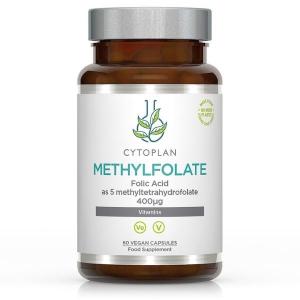
Why Vitamin D is Key to a Baby's Healthy Development

Why Vitamin D is Crucial for Babies and How to Administer it Properly
When a baby is born, it marks the beginning of a completely new life stage—not just for the baby, but for the entire family. In the first months of life, a baby develops rapidly, grows, and gradually builds immunity. During this period, one essential substance plays a critical role—vitamin D. Although it is often discussed in the context of adults and the prevention of osteoporosis or mental health, its importance for newborns is even more pronounced.
Vitamin D is not just a dietary supplement. It is key to ensuring bones grow properly and that the body effectively absorbs calcium and phosphorus—two minerals essential for healthy skeletal development. Without an adequate amount of vitamin D, young children are at risk of developing a condition called rickets, which is a softening of the bones that can lead to deformities and stunted growth.
How Babies Obtain Vitamin D and Why It's Not Enough
In an ideal world, the human body would obtain most of its vitamin D through the action of sunlight on the skin. However, for newborns, the situation is more complicated. A baby's skin should not be exposed to direct sunlight until six months old due to its high sensitivity and the risk of damage. Additionally, in our geographical latitudes (especially during autumn and winter), the intensity of UVB radiation is insufficient for the skin to produce an adequate amount of vitamin D.
Breast milk, although ideal nutrition for a baby, does not contain enough vitamin D to meet a baby's daily needs. A study published in the Journal of Nutrition found that even fully breastfed babies without supplementation had lower levels of this vitamin. This is why pediatricians recommend administering vitamin D as part of daily infant care right from birth.
Which Vitamin D is Suitable for Babies?
When choosing a suitable supplement, it's good to focus not only on the brand but primarily on the composition. The form of the vitamin is crucial—the most commonly used is vitamin D3 (cholecalciferol), which is more natural and better absorbed by the body than its plant-based counterpart, vitamin D2.
Try our natural products
For babies, drops are the ideal form, as they are easy to dose and administer. Most products on the market offer a dose of about 400 IU (international units) per day, which is the amount recommended by experts for newborns and infants up to 12 months old. Products should be free of added sugar, flavors, and preservatives. Parents often ask if it makes sense to choose natural supplement variants—and the answer is yes. Natural dietary supplements without synthetic additives are generally gentler on a child's sensitive body.
An interesting option is also vegan vitamin D3 drops derived from lichen, which are suitable for families that avoid animal products. If you are unsure about your choice, it is always advisable to consult a pediatrician.
Until When Should Vitamin D be Given to a Baby?
One of the most common questions parents ask is: how long should vitamin D be given to a baby? The answer is not universal but comes from recommendations by professional organizations.
According to the Czech Pediatric Society, every baby should receive vitamin D from the second week of life up to one year of age. Some sources, such as WHO recommendations or the American Academy of Pediatrics, even suggest continuing administration further, at least until two years, especially if the child was not sufficiently exposed to sunlight or has a limited intake of vitamin D in their diet.
For older children, dosing is adjusted according to age, weight, and dietary habits. More important than the exact date of ending supplementation is ensuring sufficient levels of vitamin D in the blood, which can be verified by blood tests if necessary.
What Happens When Vitamin D is Lacking
Mrs. Petra from Olomouc initially didn't notice anything unusual about her four-month-old daughter. The little one was content, gaining weight, and eating well. It wasn't until a routine check-up with the pediatrician that the doctor noticed slight flattening of the skull and mild curvature of the legs. The diagnosis was an early form of rickets. It turned out that due to confusion about vitamin D dosing, the child was taking it irregularly. After a few weeks of regular supplementation and under medical supervision, the condition improved significantly.
Such cases are not uncommon. Many parents underestimate the importance of consistent daily administration—especially when the child appears healthy. However, a lack of vitamin D may not manifest immediately. It is a silent problem that can affect bone quality and a child's health for life.
Vitamin D and an Alternative Approach to Child Care
Parents who prefer a natural lifestyle sometimes seek alternatives to conventional supplements. Eco-friendly stores now offer products that combine vitamin D with other natural ingredients that support absorption—for example, with coconut oil or cold-pressed olive oil. These forms are often well-tolerated and align with a lifestyle free of chemicals and unnecessary additives.
When choosing a product, it is worth paying attention to labels. Bio quality certifications, absence of palm oil, or the origin of ingredients can be good indicators. After all, as with nutrition, less is sometimes more even in supplements. Quality and purity of composition are crucial for such small children.
How Much Sun is Just Right?
Although it is advised to protect babies from direct sunlight, complete absence of daylight is not ideal. Short walks outside, even in the shade, help the body naturally maintain rhythms associated with day and night. Once a child grows and their skin is better able to protect itself from sun exposure (around the first year of life), short periods in the sun are recommended—naturally taking into account the time of day, season, and use of protective measures.
Key Takeaways
Vitamin D is one of the few dietary supplements that are truly essential for infants. Its regular administration is a simple yet very effective way to prevent serious health complications. Even though it may seem that a single drop a day cannot be very significant, the opposite is true.
Pediatricians and nutrition experts agree: "Healthy bone development in the first year of life is the foundation for lifelong health." And vitamin D is one of the building blocks of this foundation. Therefore, it makes sense to spend some time choosing the right preparation, as well as being diligent in its daily administration.
And who knows—perhaps that little bottle of drops on the shelf in the nursery does much more than it seems at first glance.







